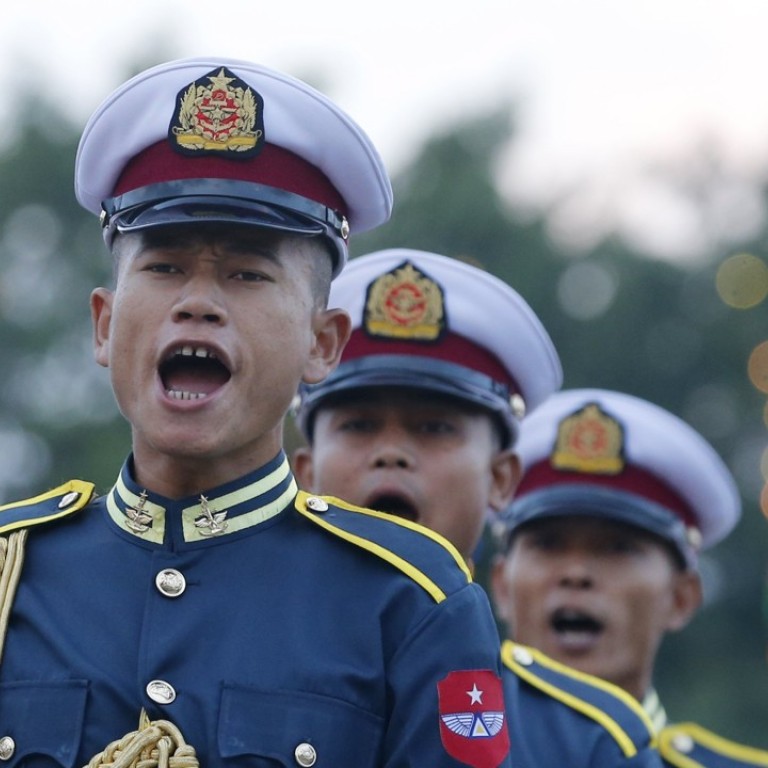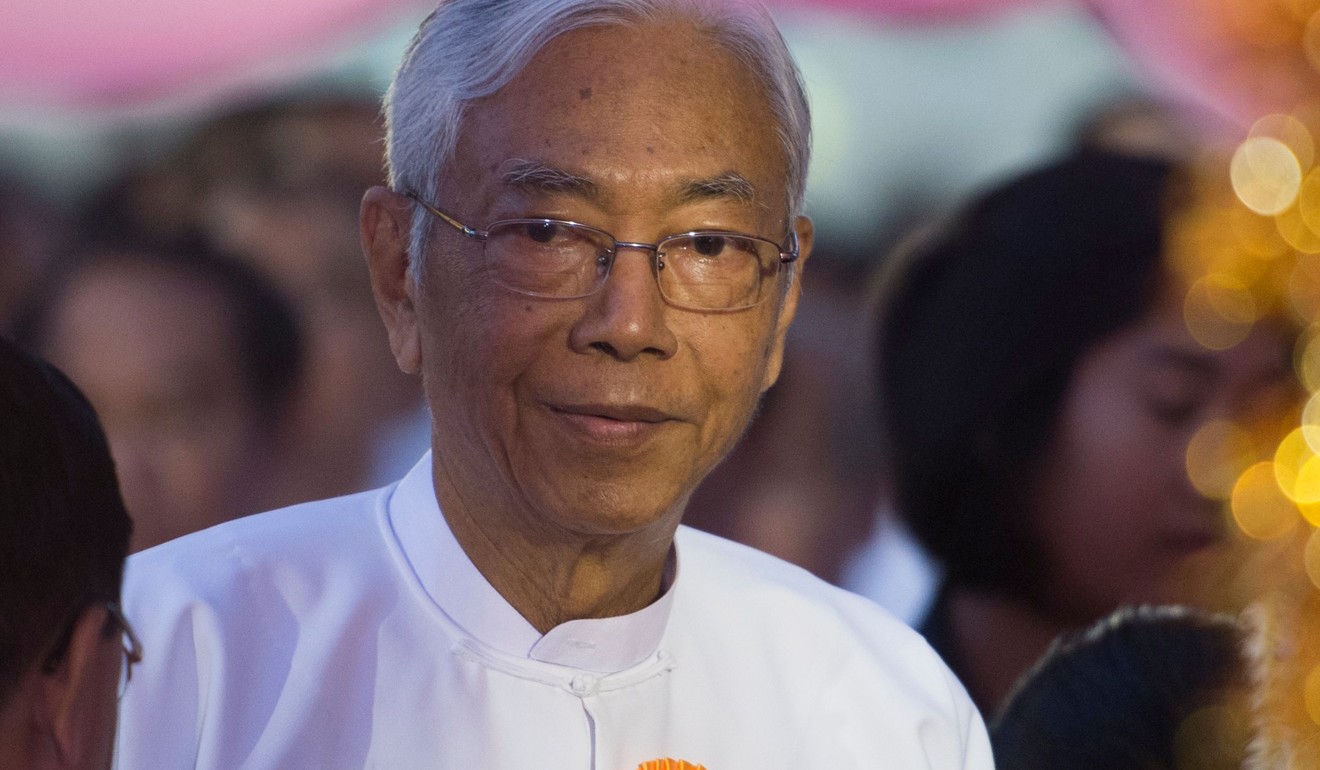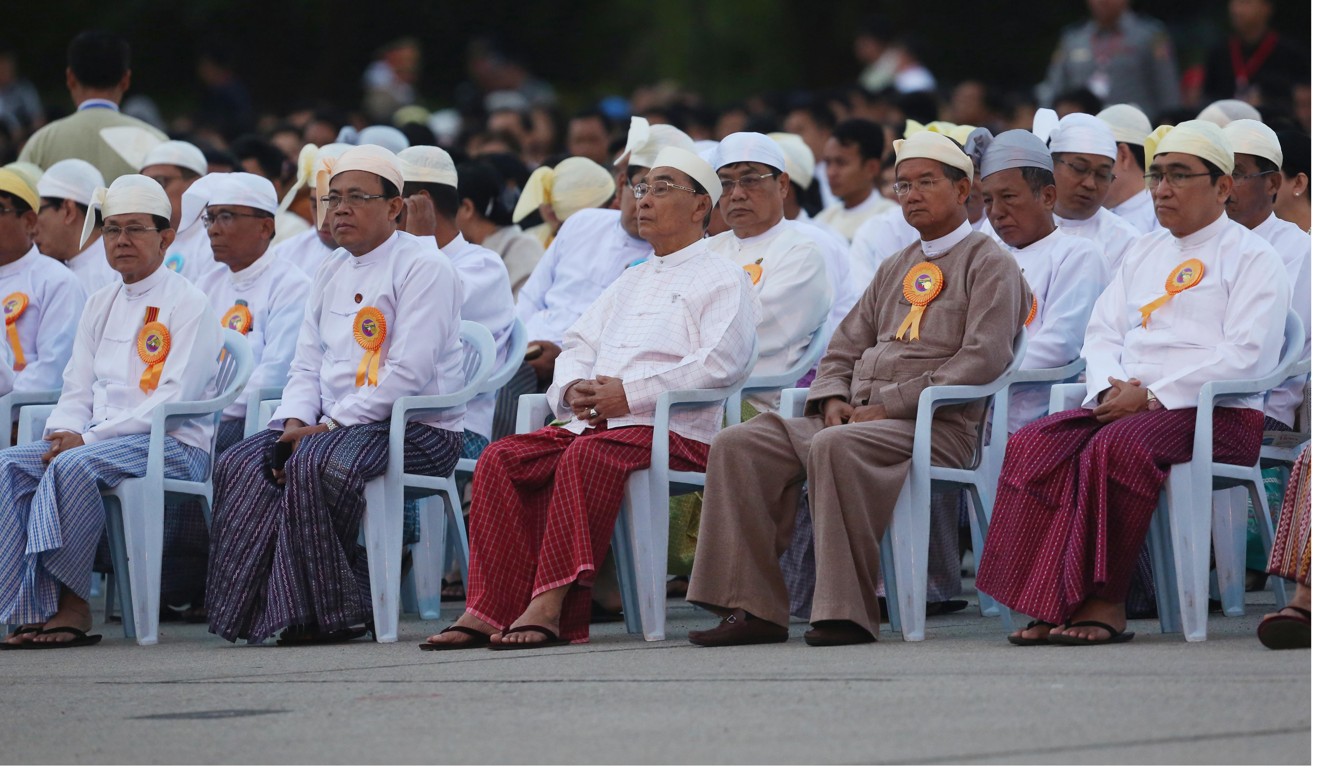
Myanmar president calls for reform of military-drafted constitution
Myanmar’s president called on Independence Day on Thursday for reform of a military-drafted constitution and for justice for all recognised minorities under a federal system, but made no mention of the treatment of its Rohingya Muslim people.
Amending the charter to remove a dominant political role for the military has been one of the most contentious issues facing Myanmar as it emerges from nearly half a century of strict army rule.
The debate over constitutional reform, however, has been muted since the assassination in January last year of a lawyer advising government leader Aung San Suu Kyi’s ruling party on the issue.
“As we build the Democratic Federal Republic, in accordance with the results of the political dialogues, we all need to work collectively for creating a suitable constitution,” President Htin Kyaw said in a statement to mark the 70th anniversary of Myanmar’s independence from Britain.

Htin Kyaw did not elaborate on what he meant by suitable.
The constitution bars Suu Kyi from becoming president because it rules out candidates with a foreign spouse or child. Suu Kyi’s late husband was British as are her two sons.
It also reserves for the military one quarter of the seats in parliament and several major cabinet posts, including defence, interior and border affairs, giving it an effective veto over constitutional change and control of security affairs.
Htin Kyaw called for respect for human rights but he did not refer to the crisis over the exodus of 655,000 Rohingya people, nor to the international condemnation it has generated.
“We are working for the emergence of a democratic state based on the principles of freedom for all ethnic national races, justice, equality and right of self-determination,” he said.

“National race” is a term used by Myanmar referring to what it categorises as indigenous ethnic groups. The Rohingya, who have traditionally lived in Rakhine, have been denied inclusion as authorities regard them as illegal immigrants who have crossed over from Bangladesh.
The Rohingya crisis erupted in late August after Rohingya insurgent attacks on security posts in Rakhine triggered a fierce military response that the United Nations denounced as ethnic cleansing.
Myanmar denies ethnic cleansing saying its security forces have mounted legitimate clearance operations.
Amending the constitution would not be easy.
Changes require a 76 per cent majority vote in a parliament dominated by military members and their allies.
The killing of lawyer and constitutional expert Ko Ni last year has not been fully explained even though the gunman was caught at the scene.
Many activists believe Ko Ni, who was Muslim, was targeted for his efforts to reduce the military’s political role.

